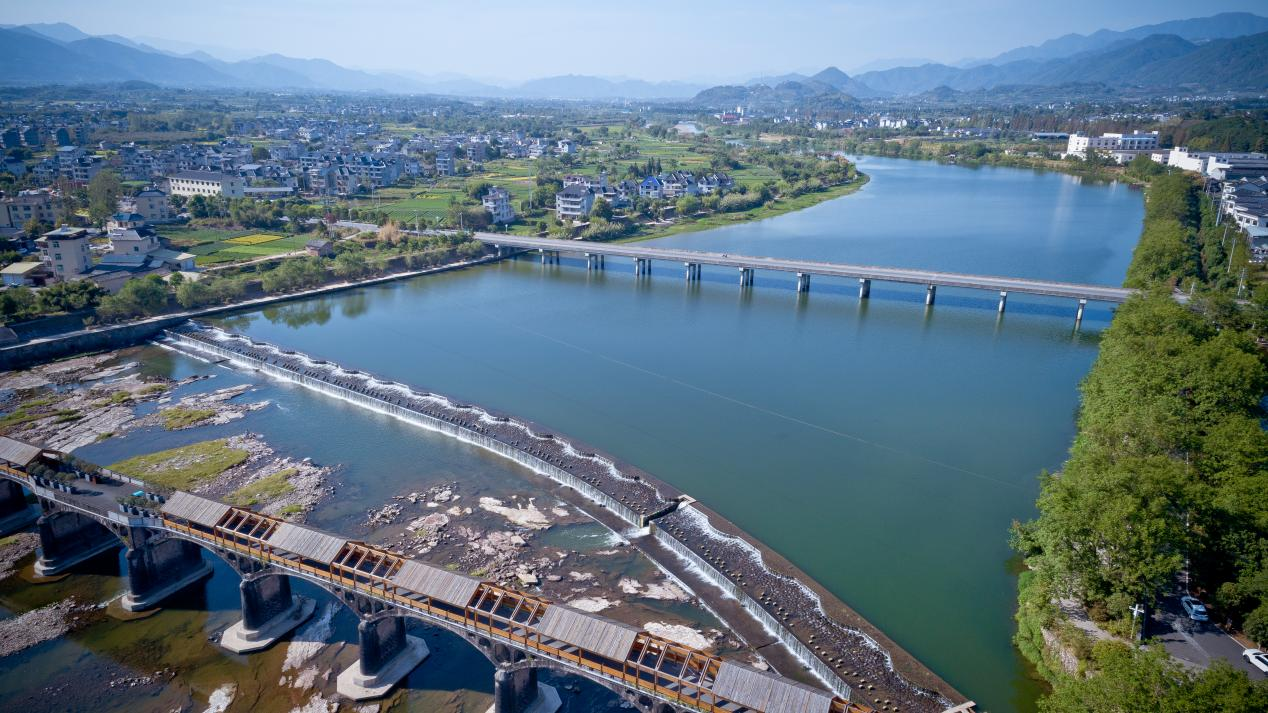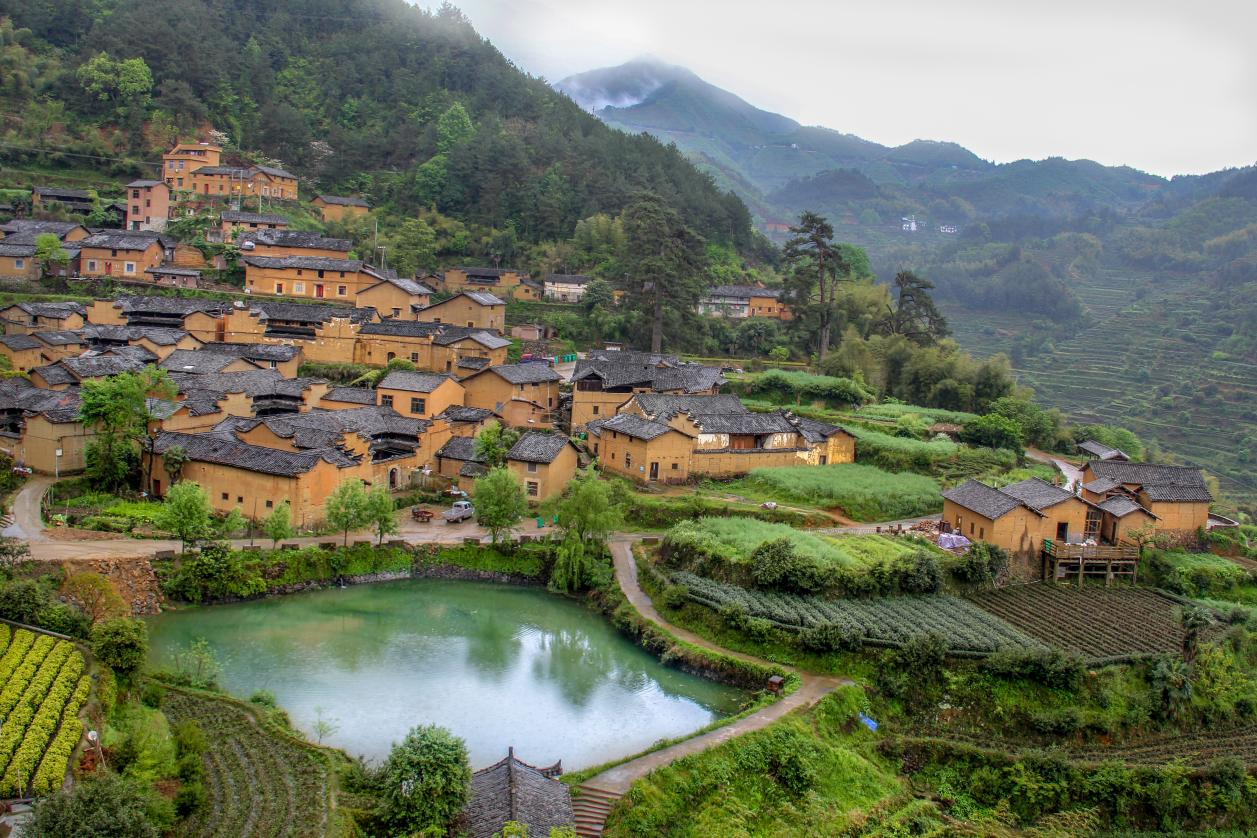
As the largest grain-producing area of Oujiang River Basin in Zhejiang Province, Songgu Irrigation Scheme boasts of an irrigated area of over 11,000 hectares. As an old Chinese saying goes, when Songyang county has a bumper harvest, the entire region of Chuzhou Municipality will enjoy sufficient food supply, which reflects the abundance and prosperity of Songgu Irrigation Scheme.
In 138 BC, a small kingdom of Dong’ou moved northward and relocated at Gushi Town of Songyang County. Thanks to the excellent local irrigation condition, some soldiers and civilians of Dong’ou started land reclamation, thus transforming Gushi Town into a place with well-developed agriculture and thriving market, and launching Songyang’s history of agricultural irrigation. In the period of 1041-1048, Bairen Weir was built on the south bank of Songyinxi Stream at the foot of Dushan Mountain. Two weirs of Fangxi stream were built in the village of Shisandu, irrigating more than 500 hectares of farmland. In 1340, Bailong Weir was constructed in the south of Songyang County, watering over 130 hectares of cropland. During the Song and Yuan Dynasties (960-1368), Songgu Irrigation Scheme gradually took shape.

In late Ming and early Qing Dynasties (1600-1644), Songyang County boasted of 116 weirs, ranking first among all counties in Oujiang River Basin. The ancestors of Songyang took local terrain into consideration when building weirs and canals for water diversion, and gradually built Songgu Irrigation Scheme with Songyinxi Stream as its water source. Moreover, it has a complete management system and an irrigation network with densely covered weirs and crisscrossed canals. At present, there exist 14 ancient weirs that can still irrigate hundreds of hectares each in Songgu Irrigation Scheme. Such great density is of extreme rarity.
In the Water Museum of Songyang County, there is a collection of 16 notices, statements and inscriptions left by 14 county magistrates, which record the history of rehabilitation, management, water distribution and water disputes in Songgu Irrigation Scheme over a period of 555 years and underline the spiritual heritage of irrigation agriculture in Songyang.